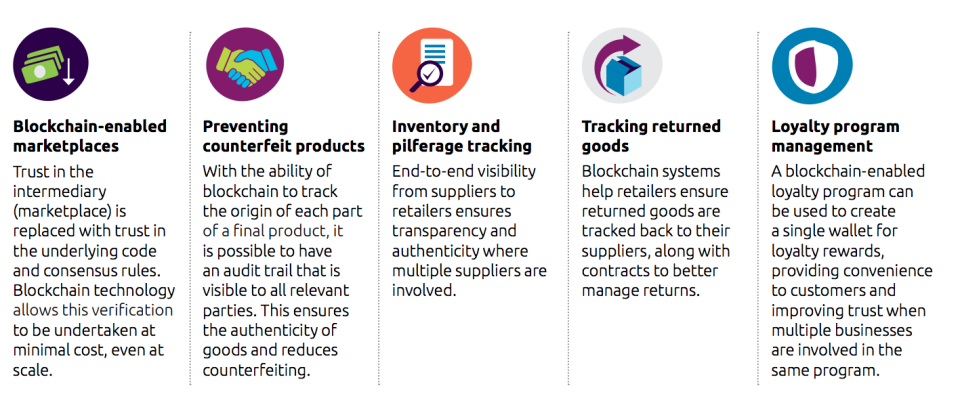Here’s 2 ways retailers like Starbucks and Amazon use blockchain

It’s the major buzz word in tech. Google search requests for the word “blockchain” has increased by 250% in a year. But despite it becoming almost a household word, very few people know how it works and what it actually does.
So how are businesses actually putting it to use?
Also read: Is now the time to invest in cannabis stocks?
Simply put, blockchain is the technology that underpins cryptocurrencies such as Bitcoin and Ethereum. But its uses are much wider than digital currencies.
It’s described as a ‘digital ledger’, a decentralised spreadsheet of transactions. Think of it like Google Docs: rather than sending a traditional Word document over to someone, waiting for it to be updated by the other party, and getting it sent back, both parties are able to see the most updated version of the document – or ledger – at the same time.
Major retail giants have started using blockchain to solve a number of key problems. According to a new report by Capgemini, Walmart, Starbucks, Amazon, JD.com and Carrefour have started experimenting with the distributed ledger technology and these are the problems they’re trying to solve:

1. Increasing trust
Online marketplaces like Amazon and Alibaba are growing quickly – but with growth comes trust issues, which will raise costs and impede further growth, the report said. Efficient verification of identities and transactions is needed.
“Blockchain technology fundamentally transforms the traditional flow of information and third-party verification,” the report said. “Any transaction, or information about the agents and goods involved, can be verified at little cost and in real time.
“Trust in the intermediary is replaced with trust in the underlying code and consensus rules. With blockchain technology, the incremental cost of verification is minimal even as these marketplace models scale.”
Also read: 5 ways to keep calm during a financial storm
Not only will incumbents benefit from blockchain, but smaller businesses who implement the technology can partner with blockchain-enabled platforms or marketplaces.
2. Nipping counterfeit products in the bud
Digitisation of commerce has produced no shortage of counterfeit goods, amounting to 2.5 per cent of global trade – or the equivalent of $461 billion.
This is where blockchain steps in, helping retailers verify the authenticity of the products. ‘Permissioned distributed ledgers’, whereby parties need permission to read and transact on a blockchain, are particularly helpful in these instances.
Also read: 6 easy tips to supercharge your super
“The blockchain maintains a timestamped archive of each token transaction, i.e., movement, in the supply chain.

“Such a solution reassures the brand’s owners, its logistics partners, and consumers that the captured data stored on the ledger cannot be edited.
“This creates trust and allows consumers to track the authenticity of the product through a mobile app.”

 Yahoo Finance
Yahoo Finance 
